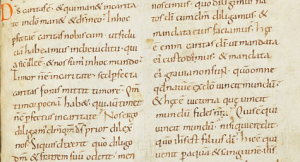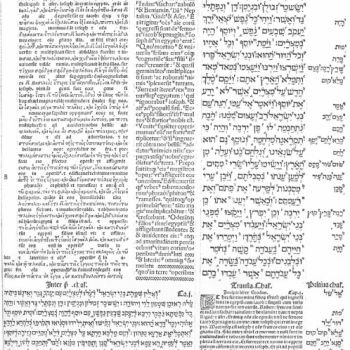Proem
In this post, I’m experimenting with taking Mudblood Catholic in a new direction. I’ve decided to try this for a couple reasons.
The first is that, to be honest, writing on the political and cultural aspects of Catholicism has become tiring and discouraging. I don’t know that I’m persuading anybody who doesn’t already agree with me of anything; I’m not sure either that I’m affording anybody who does share my views any encouragement or help. This has made writing a slog, and is a big part of why I’ve been posting so irregularly for the past couple years.
The other reason is, I’ve been thinking for a long time about vocation. I thought I’d know what God wanted me to do with my life by the time I was sixteen years deep in the Catholic faith. In point of fact, I don’t have more clarity about that question now than I did when I was an obnoxious twenty-year-old saying things like “Actually God decided when the Church would celebrate the Assumption of the Theotokos.1” I guess I’ve advanced a little, in that I know I’m not called to be a priest or a religious brother—not by some profound, mystical technique of discerning the mind of God, but because the Church won’t have me in either context. (Bitter though I clearly am about that, I can at least appreciate that the last thing the Church needs right now is another priest who can’t keep it in his pants.)

Which, well, start where you are. What have I got to offer? I studied Classics in college, so I could read the New Testament in the Greek; moreover, my high school put a high priority on teaching its students to read Scripture—not just through the lens of systematic theology, but in its historical and literary context.2 As a result, understanding Scripture is something I’m reasonably good at. God doesn’t necessarily play to our tastes, he does tend to play to our strengths (after all, he put them there). Additionally, one of my frustrations with the Church in our day is how poorly most Catholics know the Bible, and in my experience, few homilies even attempt to remedy this.
So, I’m pivoting to textual comments, and maybe also some reflections, on the Gospel readings for Sundays and solemnities throughout the liturgical year. (Depending how things go, I may change or add things.) I personally think part of the reason many Catholics don’t know our Bible is that the translation used at Mass, the NABRE* is kind of weak—or, in the Psalms, positively wretched. Things are a little better in the Ordinariate, where we use the RSV-CE,** not the NABRE; but even the RSV has its limitations.4 I therefore propose to start by presenting each Gospel reading in four versions: the King James; the NABRE; the RSV-CE; and my personal translation.5 I’m including the King James because of its historical importance among English-speakers (especially those of the Anglican Communion, to which the Ordinariate has ties). Similarly, I will be using the Anglican seasonal names—e.g., we’ve come upon the twenty-fourth Sunday after Trinity, known to the rest of the Roman rite as the thirty-third Sunday in Ordinary time—on the recondite theological grounds that weird names for things are more fun. References will include chapter and verse numbers, but I will not include these in the texts themselves; when a reading incorporates only parts of a continuous passage (usually for reasons of length), I’ll include the omitted text in grey.
There being no time like the present, let’s get to it.
*The New American Bible, Revised Edition.
**The Revised Standard Version, Catholic Edition.
The Gospel for the Twenty-Fourth Sunday After Trinity, MMXXIII:
Which Is the Thirty-Third Sunday in Ordinary Time, 2023

A sestertius dating to the year 64, during the reign of Nero. The sestertius was worth
one quarter of a denarius, the normal daily wage for a manual laborer at the time; this was
a little less than the Greek drachma, which the New Testament sometimes uses as a synonym.
The gospel for the Twenty-Fourth Sunday after Trinity in the year of Our Lord 2023 comes from the Gospel according to Saint Matthew, beginning in the twenty-fifth chapter at the fourteenth verse, and proceeding to the thirtieth.
KJV
“For the kingdom of heaven is as a man traveling into a far country, who called his own servants, and delivered unto them his goods. And unto one he gave five talents, to another two, and to another one; to every man according to his several ability; and straightway took his journey. Then he that had received the five talents went and traded with the same, and made them other five talents. And likewise he that had received two, he also gained other two. But he that had received one went and digged in the earth, and hid his lord’s money.
“After a long time the lord of those servants cometh, and reckoneth with them. And so he that had received five talents came and brought other five talents, saying, ‘Lord, thou deliveredst unto me five talents: behold, I have gained beside them five talents more.’ His lord said unto him, ‘Well done, thou good and faithful servant: thou hast been faithful over a few things, I will make thee ruler over many things: enter thou into the joy of thy lord.’ He also that had received two talents came and said, Lord, thou deliveredst unto me two talents: behold, I have gained two other talents beside them.’ His lord said unto him, ‘Well done, good and faithful servant; thou hast been faithful over a few things, I will make thee ruler over many things: enter thou into the joy of thy lord.’
“Then he which had received the one talent came and said, ‘Lord, I knew thee that thou art an hard man, reaping where thou hast not sown, and gathering where thou hast not strawed: And I was afraid, and went and hid thy talent in the earth: lo, there thou hast that is thine.’ His lord answered and said unto him, ‘Thou wicked and slothful servant, thou knewest that I reap where I sowed not, and gather where I have not strawed: Thou oughtest therefore to have put my money to the exchangers, and then at my coming I should have received mine own with usury. Take therefore the talent from him, and give it unto him which hath ten talents. For unto every one that hath shall be given, and he shall have abundance: but from him that hath not shall be taken away even that which he hath. And cast ye the unprofitable servant into outer darkness: there shall be weeping and gnashing of teeth.'”
NABRE
“It will be as when a man who was going on a journey called in his servants and entrusted his possessions to them. To one he gave five talents; to another, two; to a third, one—to each according to his ability. Then he went away. Immediately the one who received five talents went and traded with them, and made another five. Likewise, the one who received two made another two. But the man who received one went off and dug a hole in the ground and buried his master’s money.
“After a long time the master of those servants came back and settled accounts with them. The one who had received five talents came forward bringing the additional five. He said, ‘Master, you gave me five talents. See, I have made five more.’ His master said to him, ‘Well done, my good and faithful servant. Since you were faithful in small matters, I will give you great responsibilities. Come, share your master’s joy.’ [Then] the one who had received two talents also came forward and said, ‘Master, you gave me two talents. See, I have made two more.’ His master said to him, ‘Well done, my good and faithful servant. Since you were faithful in small matters, I will give you great responsibilities. Come, share your master’s joy.’
“Then the one who had received the one talent came forward and said, ‘Master, I knew you were a demanding person, harvesting where you did not plant and gathering where you did not scatter; so out of fear I went off and buried your talent in the ground. Here it is back.’ His master said to him in reply, ‘You wicked, lazy servant! So you knew that I harvest where I did not plant and gather where I did not scatter? Should you not then have put my money in the bank so that I could have got it back with interest on my return? Now then! Take the talent from him and give it to the one with ten. For to everyone who has, more will be given and he will grow rich; but from the one who has not, even what he has will be taken away. And throw this useless servant into the darkness outside, where there will be wailing and grinding of teeth.’”
RSV-CE
“For it will be as when a man going on a journey called his servants and entrusted to them his property; to one he gave five talents, to another two, to another one, to each according to his ability. Then he went away. He who had received the five talents went at once and traded with them; and he made five talents more. So also, he who had the two talents made two talents more. But he who had received the one talent went and dug in the ground and hid his master’s money.
“Now after a long time the master of those servants came and settled accounts with them. And he who had received the five talents came forward, bringing five talents more, saying, ‘Master, you delivered to me five talents; here I have made five talents more.’ His master said to him, ‘Well done, good and faithful servant; you have been faithful over a little, I will set you over much; enter into the joy of your master.’ And he also who had the two talents came forward, saying, ‘Master, you delivered to me two talents; here I have made two talents more.’ His master said to him, ‘Well done, good and faithful servant; you have been faithful over a little, I will set you over much; enter into the joy of your master.’
“He also who had received the one talent came forward, saying, ‘Master, I knew you to be a hard man, reaping where you did not sow, and gathering where you did not winnow; so I was afraid, and I went and hid your talent in the ground. Here you have what is yours.’ But his master answered him, ‘You wicked and slothful servant! You knew that I reap where I have not sowed, and gather where I have not winnowed? Then you ought to have invested my money with the bankers, and at my coming I should have received what was my own with interest. So take the talent from him, and give it to him who has the ten talents. For to every one who has will more be given, and he will have abundance; but from him who has not, even what he has will be taken away. And cast the worthless servant into the outer darkness; there men will weep and gnash their teeth.’”

My Translation
“It’s like a man going abroad—he calls his own servantsi and hands over his possessions to them, and he gives five libræii to this one, two to this one, one to this one, to each according to his ability; and he went abroad. Right away, the one who took five libræ went and conducted trade with them, and profited by five more; likewise, the one with two profited by two more; while the one who took one, he went off and dug in the ground and hid his master’s silver.
“After a long time, the master of the servants comes and settles the accounts with them; and the one who took the five libræ comes up to him holding out the five additional libræ, saying, ‘Master,iii you handed five libræ over to me: look, I have profited five libræ more.’ So his master says to him, ‘Well done, my good, trusty servant—you were trustworthy over a few matters, and I will set you over many; come into the graceiv of your master.’ Then the one who took the two also comes up and says, ‘Master, you handed two libræ over to me: look, I have profited two libræ more.’ So his master says to him, ‘Well done, my good, trusty servant—you were trustworthy over a few matters, and I will set you over many; come into the grace of your master.’
“Then the one who received the one libra comes up and says: ‘Master, knowing you, that you are a hard man, reaping where you did not sow and collecting from where you did not scatter—and, frightened, I went and hid your libra in the ground: look, you have yours.’ But his master said reply, ‘You exasperating,v lazy servant! you knew that I ‘reap where I did not sow and collect from where I did not scatter’? Then you should have put my silver in the hands of bankers, and on coming back I would ‘have mine’ with interest! So take the libra from him, and give it to the one with ten libræ. For to everyone that has something, more will be given and they will overflow; but from everyone that has nothing, what they have will also be taken away from them. And throw this useless servant into the dark, outside; there, there will be sobbing and grinding teeth.'”
(The superscript Roman numerals refer to textual notes, which can be found in the section after this next one.)
A Word on Translating
I don’t understand this gospel particularly well, partly because I find it frightening. (Most of the parables in the later chapters of Matthew are; this is the same place we get the Parable of the Sheep and the Goats, which, even if the rest of the New Testament had nary a soupçon of wrath, would be enough to explode the infantile “Old Testament God mean, New Testament God nice” dichotomy.) So, I won’t address myself to that in an overarching sense; what I will do is offer one general note, and a few specific ones, on why I translated the passage differently than the other three versions I offered.

There are two basic approaches to translation, what may be called word-for-word and concept-for-concept. The former has the advantage of sticking closest to the original text, but, since figures and references differ from one culture to another (to say nothing of grammar), literal translations can make pretty awkward reading. Idiomatic translation is much smoother and easier to understand, but requires a certain amount of personal judgment on the part of the translator; it takes a couple little steps away from translation proper and toward interpretation. (Some people will add a third type of translation, the paraphrase; I don’t object to paraphrasing things for a concrete purpose, but I think it’s a gross mistake to confuse paraphrasing something with translating it.)
There is therefore in Biblical translation a bias—and in my view an appropriate bias—in favor of literal translations. In some ways I carry this further than most modern Bible translators are willing to: for instance, I’ve made free use of the “historical present,” i.e. the idiom of telling a story that’s fictional or in the past using the present tense even in the narration; this is fairly common in New Testament Greek, but Bible translators tend to convert it to the past tense, since English style guides usually classify “historical present” as bad English (or at least highly casual). The thing is, I don’t see how that’s a reason not to use it? Labradors are nicer animals than the dogs which ate the flesh of Jezebel, but we don’t introduce Labradors to our text of II Kings 9 on those grounds. Jesus and most of the Twelve were from Galilee, and were mostly blue collar types to boot—they probably weren’t carrying the Aramaic equivalent of Strunk and White around the highlands and river valleys of Judæa! There’s an excellent case to be made for having a “high” translation for liturgical purposes; but when it comes to study, I don’t think we should veer away from the text as it stands unless it’s necessary to do so to make sense. And whether something makes for elegant English just doesn’t have anything to do with whether it makes comprehensible English. To paraphrase Isaiah 53: elegant, Christ ain’t.
All that said, ever since I learned enough Greek to plod through the New Testament on my own, I’ve been struck by how … non-literal a lot of self-professedly literal translations are? Even the NASB, widely considered one of the most woodenly literal English-language Bibles available, often makes slight changes in grammar or vocabulary that (to me at least) don’t seem to be required for clarity’s sake, and are also less vivid than a really flat-footedly literal rendering would be. It affects idioms, too: a lot of New Testament idioms got “smoothed out” in the English even though they would be perfectly comprehensible if rendered literally, or would require only a brief footnote. The point is, I’m of the opinion that, with a very little imagination on our part, literal translations can achieve the purposes of idiomatic ones a lot better than they’re generally given credit for.

Textual Notes on Matthew 25.14-30
Now then, the specific notes.
i. The word here is a form of δοῦλος [doulos], which is kind of a problem term. In principle, it’s not complicated: it means slave. What is complicated is the relationship between slavery in classical antiquity and slavery in American history. We tend to project our idea of the latter onto the New Testament, which can create disturbing and distorted effects—especially in the Epistles—that really aren’t there in the original texts. Slavery in the ancient world could most certainly be brutal, but there were mitigating factors in the classical institution that were absent from the American system, the most important being that ancient slavery had no racial component; no ethnic group was deemed inherently fit only for slavery. Moreover, manumission, though not guaranteed, was commonplace, and the Roman Empire always had a substantial population of freedmen; and, since slaves were frequently educated (might, indeed, be bought to act as secretaries or property managers), the cultural distance between free-born citizens on the one hand and slaves on the other were often negligible. I’ve therefore opted for the “softened” term “servant” to translate δοῦλος, as I think it conveys the atmosphere a bit better.
ii. A libra, or Roman pound (this is why the symbol for pounds stirling is £), was roughly equal to a Greek talanton, the measurement from which we get the word “talent.” (The amount was roughly seventy-five pounds, the implication being that it is that quantity of some precious metal—likely silver, in line with v. 18.) However, the metaphorical meaning of talent—derived from this very parable—has swallowed up the original meaning for English speakers. I’ve therefore used the Roman unit instead; my hope is that this will either sound like a foreign unit, and thus produce something slightly closer to the original effect, or suggest if anything the constellation Libra, which as a set of scales does have relevant associations at least.
iii. The word master here is my rendering of κύριος [kürios]. This is most often translated “lord,” e.g. in the Kyrie at Mass. I think master is a better translation (which is not the same as thinking it’s better for devotional use!). The English lord is used primarily in histories and liturgies today; κύριος was a normal Greek form of respectful address, used for most people who were one’s social equal or superior, but especially people with any kind of rank or accomplishment (rabbis, for instance). Master is an academic title to this day in many institutions, and moreover isn’t far—in sound, sense, or origin—from “mister,” again a respectful but relatively unobtrusive title.
iv. This represents χάρις [charis]; its most natural translation is often “grace,” but it ramifies into other senses that aren’t easily related to the senses of the English word. The term χάρις itself can also mean “favor,” “beauty,” or “joy” in other contexts, and is related to verbs meaning “enjoy” and “rejoice,” as well as being the source of such words as charism. (Its resemblance to the word “charity,” which we got from Latin’s caritas, however, is accidental: though Latin frequently borrowed from Greek, caritas isn’t one of them. It comes from the adjective carus, meaning “precious, dear”—itself descended from a more primitive stem meaning “costly.”) I settled on grace here as the English word with the widest range of meanings.
v. Exasperating here stands for πονηρός [ponēros]; “troubling,” “wearying,” or “toilsome” would be equally close. However, πονηρός had reached a point in its development where it could mean moral evil, and indeed, in the Our Father, our prayer to “deliver us from evil” or “from the evil one” describes the evil one precisely as πονηρός.
Footnotes
1No, this isn’t quite word-for-word; but yes, I did express this exact sentiment—to my own mother, no less, for having the audacity to ask me how the Church chose the date for this solemnity—and God, who is rich in mercy, did not open the earth and swallow me on the spot.
2Admittedly, my teachers prioritized Reformed doctrine over historical and literary context (not that they’d have put it like that). This effectively meant taking a sort of middle road between what most people would call fundamentalism and the approach accepted by mainstream scholarship today. But they made no bones about what their presuppositions were, or why they believed and applied them (which I respect to this day), and they tried not to warp interpretive technique in the service of their conclusions. Also, they weren’t Dispensationalists,3 so their method of interpretation acknowledged those differences in genre and therefore in meaning that the Ryries, LaHayes, and Falwells of the world make it their business to ignore.
3Dispensationalism is a school of Protestant theology, largely associated with American fundamentalist and evangelical churches (mainly of the Baptist, charismatic, and non-denominational traditions). I can’t really do justice to the system in a footnote, but the salient point is its method of interpreting Scripture, which is flat-footedly literal; even the book of Revelation is taken to be a coded, yet (if we can but find the key-word) in principle straightforward, description of events that will take place in history. Allegorical, mystical, and multi-layered interpretations are Right Out.
4I mean, the NABRE is … fine? But I’m specially critical of its rendition of the Psalms, because that is the one book of Scripture where, for practical reasons, æsthetics must be the topmost concern of the translator; and as poetry, the NABRE version of the Psalms is just rotten—neither idiomatic English nor truly poetic













